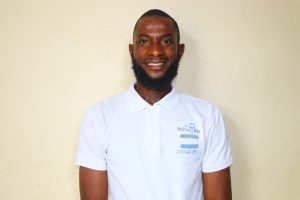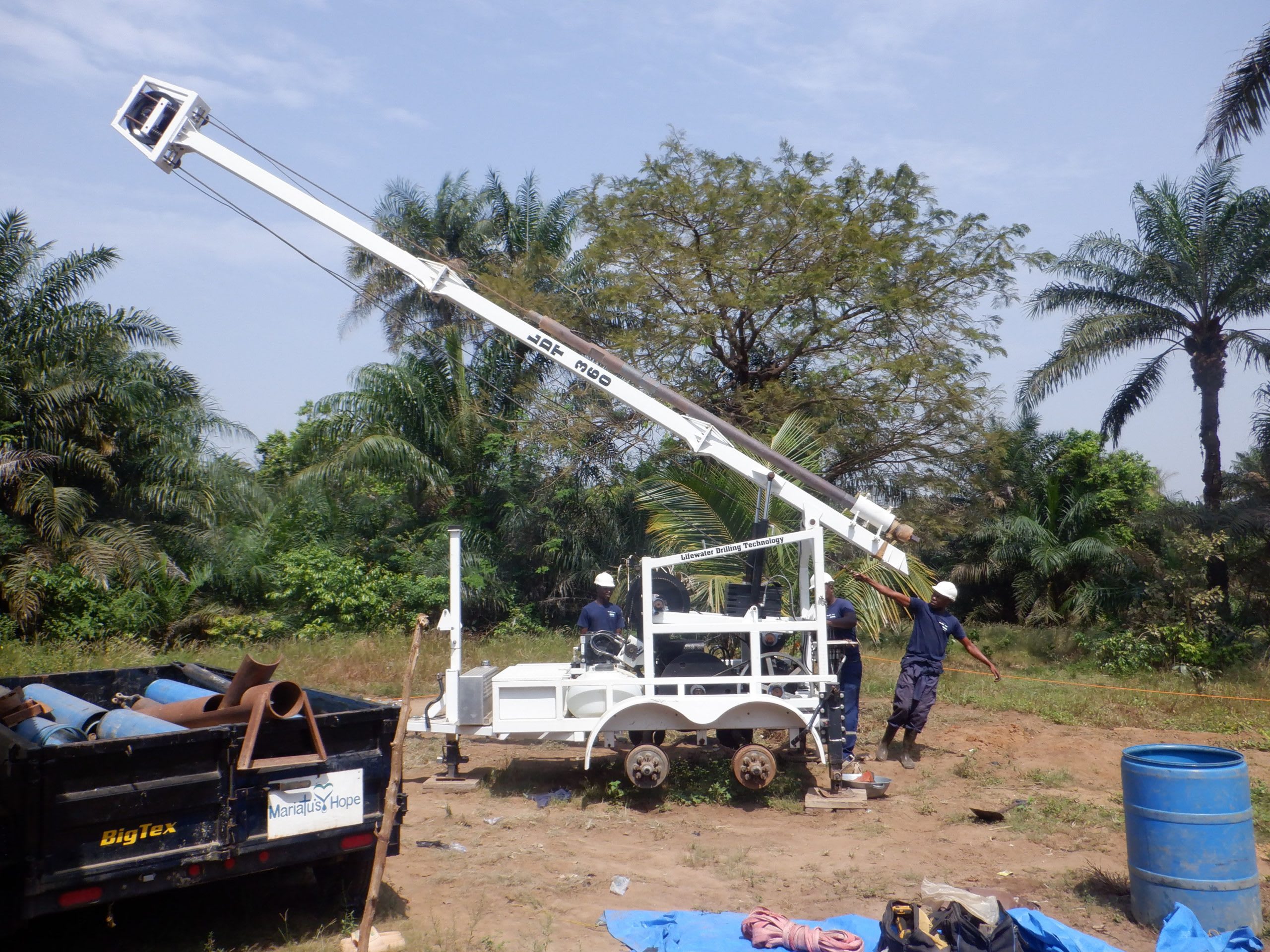The Mathorie Community's 157 residents lack access to a reliable water source. When their community well is closed, which is located on private property, they must journey to a distant mosque to use their well. The timing of the community well's availability is at the property owner's discretion, disrupting everyone's daily routine.

A community member pulls up water from the well.
"Fetching water in my community is a big problem. I always meet people at the well, and they do not allow me or are sorry for me to fetch water. Sometimes, I would explain to them that I wanted to go to school, so [they] let me fetch water," shared seventeen-year-old Mariama.
Girls like Mariama bear heavy burdens, striving to meet the expectations of their families, schools, and society. She is expected to collect enough water to fulfill her family's needs, all while trying to get to school on time and do her homework.

Mariama pulls up water from the well.
"Fetching water impacts my time at school, and this will lead me [to] not get much time to study my school notes. I spend a lot of time to collect water for my parents. In the morning, before going to school, I must fetch water, and after school, I fetch water, and the burden [of] fetching water at home causes me not to go to school on time. This will lead to poor grades because I do not have enough time to study for the exams. I will be very happy if this project provides [a] water well in my community so that I will not strain to fetch water," she continued.
With all the demands on Mariama's time, she is unable to do everything. Something has to give, and her need for water is physiological; she can't decide to skip drinking, cooking, or practicing hygiene. In a culture where educating young girls is already an uphill battle, the water crisis makes it even more challenging.

Mariama and another community member bring water home.
"I feel bad when sent to collect water, especially from the open well. It requires time and energy to collect water from the well. This pains me most due to the method of collecting water from the well. Also, walking long distances to fetch water causes me to feel pain. I will be waiting for my turn to collect water, and during that time, I get tired. I will not be able to do other domestic work," Mariama shared.
Installing a well in the Mathorie Community will allow Mariama to collect water easily. Then, she will be able to meet her family's needs while going to school on time and focusing on her studies. She's going to need that time because she has big goals!

"My plan is to be a lawyer. I will be able to achieve this when I [can] pay much concentration [to] my education [and] have much time to study my school notes. Then I will get good scores," Mariama concluded.
Steps Toward a Solution
Our technical experts worked with the local community to identify the most effective solution to their water crisis. They decided to drill a borehole well, construct a platform for the well, and attach a hand pump.
Well
Abundant water often lies just beneath our feet. Aquifers—natural underground rivers—flow through layers of sediment and rock, offering a constant supply of safe water. A borehole well is drilled deep into the earth to access this naturally filtered and protected water. We penetrate meters, sometimes even hundreds of meters, of soil, silt, rock, and more to reach the water underground. Once found, we construct a platform for the well and attach a hand pump. The community gains a safe, enclosed water source capable of providing approximately five gallons of water per minute. Learn more here!
Community Education & Ownership
Hygiene and sanitation training are integral to our water projects. Training is tailored to each community's specific needs and includes key topics such as proper water handling, improved hygiene practices, disease transmission prevention, and care of the new water point. Safe water and improved hygiene habits foster a healthier future for everyone in the community. Encouraged and supported by the guidance of our team, a water user committee representative of the community's diverse members assumes responsibility for maintaining the water point, often gathering fees to ensure its upkeep.

 Borehole Well and Hand Pump
Borehole Well and Hand Pump
 Rehabilitation Project
Rehabilitation Project

















